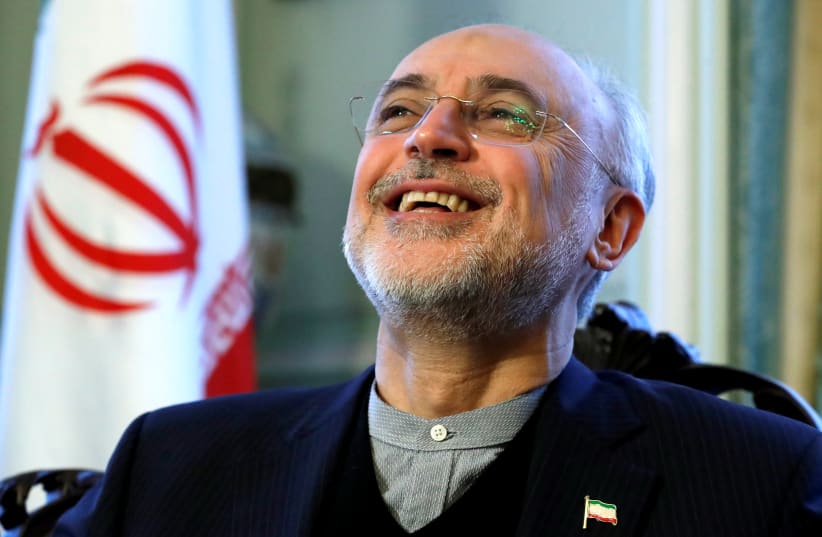Iran’s nuclear chief Ali Akbar Salehi said on Friday that Tehran had started 60% uranium enrichment at its Natanz site, days after an explosion at the site that Tehran blamed on Israel.The Israeli security government cabinet will meet at 4:00 on Sunday to address the new announcement, Israeli media reported.Earlier the speaker of Iran’s parliament said Iranian scientists had successfully started enriching 60% uranium at 12.40 a.m. local time. "I am proud to announce that at 00:40 … Iranian scientists were able to produce 60% enriched uranium," he wrote.
Earlier this week, Iran's announcement that it would enrich uranium up to the 60% level made waves globally at a level of magnitude far above any of its prior threats.On Thursday, the IAEA said that Tehran was already deep into preparations to make its threats a reality.
If Iran indeed pulled off its threat, it would bring it much closer to breaching the threshold for a nuclear bomb.
In order for uranium to be weaponized, it must be enriched to 90%.
Under the 2015 nuclear deal, Iran had to stay below 5% nuclear enrichment.
However, both before the nuclear deal and since the Islamic Republic started violating the deal in 2019-2020, it has enriched some of its uranium stock to a mid-level 20%.
Yonah Jeremy Bob contributed to this report. This is a developing story.
Former IDF intelligence chief Aharon Ze’evi Farkash told The Jerusalem Post that “I would treat the announcement at this point as a signal of intent to improve its [Iran’s] negotiating hand on the eve of returning to negotiations this week in Vienna with the EU-3.”
Iran and global powers resumed talks on Thursday to rescue the 2015 nuclear deal in an effort potentially complicated by Tehran's decision to ramp up uranium enrichment and what it called Israeli sabotage at a nuclear site.
